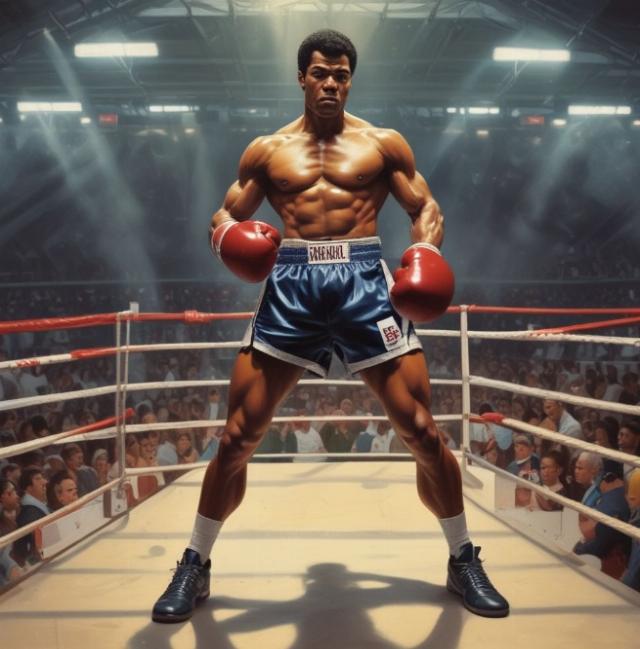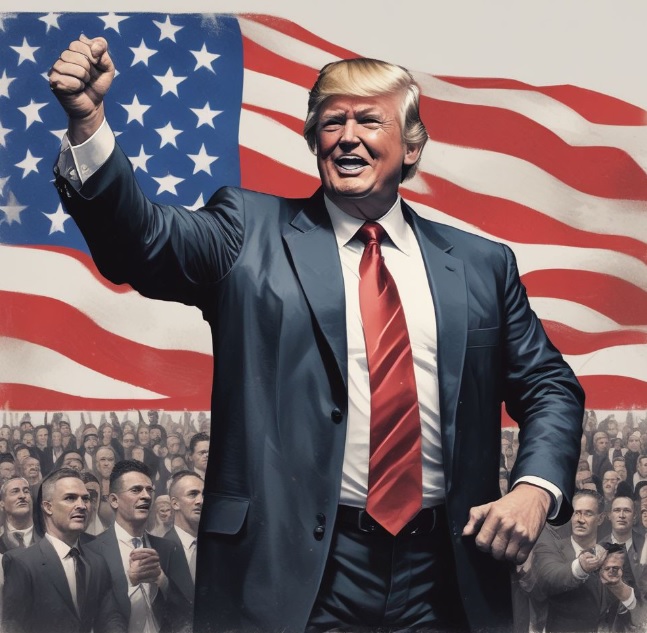
Ali Then
Ali was from my hometown of Louisville, Kentucky, and I remember him well. At age 18, Cassius Clay, as he was known then, won the gold medal as a light heavyweight in the 1960 Olympics in Rome, making us proud. Cassius started his professional boxing career as a bright new heavyweight prospect. Maybe he bragged a little, not acting like a “real” fighter, but we still liked him.
By 1964, the young, brash Clay was the top-ranked heavyweight contender and faced a title bout in Miami against the fearsome and formidable champion Sonny Liston. Clay was an 8-1 underdog. His detractors anticipated that Liston would “shut him up.”
In Louisville’s Freedom Hall, the home crowd watched the black and white closed-circuit telecast on a movie screen. As the fight started, they were excited to see Clay holding his own. He survived Round 1, and the crowd cheered. Rounds 2 and 3 passed with more cheers. Clay was looking more likely to win. As the bell rang for Round 8, Liston sat in his corner for a TKO. Not as satisfying as a knockout, but Cassius had “shocked the world!”
Louisville was happy to have a champ. But the next day, it all changed. Clay announced his affiliation with the Nation of Islam. Shortly after, he changed his name to Muhammad Ali, an act unheard of in sports. Then, he was drafted into the military, as this was during the Vietnam era. When Ali refused induction, the establishment turned on him. He was stripped of his title even before any court convictions. State boxing commissions revoked his license to fight.
<img alt captext="AT via Magic Studio” class=”post-image-left” src=”https://conservativenewsbriefing.com/wp-content/uploads/2024/12/the-greatest-how-donald-trump-parallels-muhammad-ali.jpg” width=”450″>Ali took it all in stride, giving talks at college campuses. He felt that he was helping people more by following his beliefs than if he had remained a fighter. Then, in 1971, he got a break when the U.S. Supreme Court voted 8-0 to overturn his conviction on technical grounds.
Once again, Ali could fight. In 1971, he faced undefeated heavyweight champion Joe Frazier in Madison Square Garden in the “Fight of the Century.” Each fighter is guaranteed $2.5 M, an amount unheard of at that time, forever changing sports salaries.
Ali was also undefeated but older and handicapped by 3½ years of previous inactivity. Frazier won a unanimous decision, but Ali claimed to be the real winner and the “people’s champ.” During the fight, cheers of “Ali, Ali” came from the cheap seats, countered by cheers of “Joe, Joe” from the ringside seats.
Ali continued fighting, and in 1974, undefeated heavyweight champion George Foreman, seven years younger, agreed to fight Ali in Zaire. In the early rounds, Ali lay back on the ropes, letting Foreman punch away. He ignored his handlers’ shouts to move, devising his own strategy, later called the “rope a dope,” to tire out his bigger and stronger opponent. And it worked, as the jungle heat wore Foreman down. Ali knocked out Foreman and became the second world heavyweight champion ever to regain his title. He shocked the world once again.
By this time, the national mood had changed. The media was now behind Ali. Years later, after retirement, Ali was honored with lighting the Olympic torch at the 1996 games in Atlanta, to the surprise and delight of a worldwide audience. In 1999, Sports Illustrated honored Ali as the Sportsman of the Century. Louisville’s airport is now the Louisville Muhammad Ali International Airport.
At a time when professional athletes meekly answered the questions from pretentious sportscasters, Ali would ignore the question and boldly proclaim his agenda.
Ali had great empathy for the common folk. But, like some heroes, he had a complicated personal life. He had four wives and was unfaithful to the first three.
All in all, Ali was the outsider who wound up transforming the sport and then changing the world at large.
Trump Now
Donald Trump’s path has many parallels to Ali’s. In the 1980s, Trump was where it was at, with the Trump hotel brand and then with “The Apprentice” TV show. But in 2016, he ran for President as a Republican, which the media would not forgive. Like Sonny Liston, Trump’s opponent, Hillary Clinton, looked to be unbeatable. In Ali style, Trump <img alt captext="AT via Magic Studio” class=”post-image-right” src=”https://conservativenewsbriefing.com/wp-content/uploads/2024/12/the-greatest-how-donald-trump-parallels-muhammad-ali-1.jpg” width=”450″>campaigned by controlling the narrative and did not kowtow to the hostile reporters. He disregarded the conventional advice to not ridicule your opponents and had nicknames for rivals, including other Republicans. Not your typical politician.
On election night in November 2016, as the returns came in, Trump held state after state in the South and Midwest, like Clay surviving the early rounds against Liston. As the evening wore on, it looked like he had a real chance. When Michigan went for Trump, the election night ended happily but unfulfilled, as Hillary delayed a concession speech like Liston sitting in his corner.
Then, in 2024, Trump was often restrained from campaigning in court all day. But like Ali, Trump was not scared of going to jail and persisted. As Ali could have enlisted and done boxing exhibitions for the troops, Trump could have plea bargained, left politics, and remained rich and happy. But he risked it all to continue.
Like Ali, Trump has a “complicated” personal life, with three marriages. But his children loved and revered him. Like Ali, he had legal troubles but was helped by the U.S. Supreme Court.
And, of course, last month, Trump became the second U.S. president to regain the presidency, as Ali was the second heavyweight champion (after Floyd Patterson) to regain his title.
Larger than Life
Both Ali and Trump were brash and boastful outsiders. Can you imagine Jack Nicklaus shouting “I am the greatest!” after winning the Masters, or George Bush nicknaming other Republicans? But behind the brashness were substance and talent, surprising their detractors.
Both bypassed the pretentious gatekeepers of their professions and connected directly to their ordinary fans, who found their honesty refreshing. Both controlled the conversation, ignoring the narrators’ questions to get their own points across. Both battled the establishment, which used the legal system against them. Both disregarded conventional advice, at times ignored their own advisors, and did it their way.
Both had extraordinary energy and longevity. At a time when heavyweight champions waited six months between title defenses, Ali defended his first title eight times in 22 months. His career spanned 21 years, with championships spanning 16 years. At age 78, Trump could sit in court for a half day and still lead energetic campaign rallies in the evening.
Both were written off as finished, in the view of both friends and foes. But both persisted with a will of iron and risked all that they had in the process. And then, to the surprise of even their friends, they succeeded again, making unparalleled comebacks. Both were outsiders who wound up transforming their fields.
The nation went from resenting Ali to appreciating and honoring him. Maybe this will happen with Trump. In any case, Trump, like Ali, is larger than life, and his fighting spirit raises our spirits. America still appreciates an original, someone who has the courage to be himself.
Images: AT via Magic Studio





